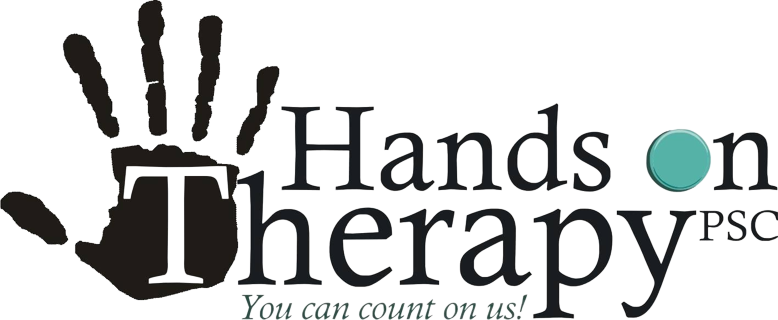Our Services
At Hands On Therapy PSC, we specialize in providing occupational therapy (OT), physical therapy (PT), speech-language therapy (SLP), and school psychology testing to school systems across Kentucky. Our team of dedicated professionals works directly within schools to support students in achieving their academic, social, and emotional potential.
Occupational Therapy in Schools
Occupational therapy (OT) in schools focuses on helping students develop the skills they need to succeed in the classroom and school environment. Unlike clinical OT, school-based occupational therapists work directly with students who have physical, developmental, or emotional challenges that impact their ability to participate fully in academic and school activities.
Our therapists support students in areas such as:
Fine motor skills – for tasks like writing, cutting, and using classroom tools
Sensory processing – helping students manage sensory input so they can focus and participate
Self-care and independence – such as managing clothing, organizing materials, or following routines
Social participation – improving peer interaction, emotional regulation, and classroom behavior
Access to learning – adapting environments or tasks to meet a student’s individual needs
The goal is to promote independence, improve functional skills, and support academic success—all within the natural context of the school day.
Physical Therapy in Schools
School-based physical therapy (PT) helps students with physical challenges access their educational environment as safely and independently as possible. While clinical PT often focuses on injury recovery or rehabilitation, school-based PT is centered around supporting mobility and physical function within the school day.
Our physical therapists work with students who may have developmental delays, neurological conditions, or physical disabilities that impact their ability to move, participate, or navigate the school environment effectively.
Areas of focus include:
Gross motor skills – such as walking, running, jumping, and balance
Mobility and transfers – including navigating hallways, using stairs, or transitioning between positions (e.g., sitting to standing)
Postural control and endurance – to support classroom participation and reduce fatigue
Safe access to school environments – like the playground, cafeteria, gym, and bus
Use of assistive equipment – such as walkers, wheelchairs, or orthotics
The goal of school-based PT is to help students move more confidently and independently throughout their school day, so they can participate more fully in both learning and social opportunities.
Speech Therapy in Schools
Speech-language pathologists (SLPs) in schools work with students to address communication challenges that may affect their ability to succeed academically and socially. In the school setting, speech therapy focuses on helping students develop essential skills for effective communication, language use, and social interaction, all of which are vital for learning and peer relationships.
SLPs support students who may have speech or language disorders, such as articulation issues, language delays, stuttering, or social communication difficulties. Therapy is designed to help students express themselves clearly, understand instructions, and participate confidently in the classroom and beyond.
Key areas of focus include:
Articulation – improving pronunciation of words and sounds
Language skills – including vocabulary development, sentence structure, and comprehension
Social communication – fostering the ability to engage in conversations, understand social cues, and participate in group activities
Fluency – addressing challenges such as stuttering to improve smooth and clear speech
Pragmatics – enhancing skills for appropriate communication in social and academic settings
The ultimate goal of school-based speech therapy is to help students become more effective communicators, improving their academic performance and social interactions, and enabling them to participate more fully in all aspects of school life.
Would you like any further adjustments or additional details on any of these sections?
School Psychology Evaluations in Schools
School psychologists play a critical role in assessing students to identify learning, behavioral, and emotional needs. Their work helps guide the development of individualized support plans that enable students to thrive academically, socially, and emotionally within the school environment.
In the school setting, psychologists conduct comprehensive evaluations to understand a student's strengths and challenges, which may include academic performance, social interactions, emotional regulation, and behavior. These evaluations are crucial in identifying students who may need special education services or other forms of support.
Key areas of evaluation include:
Cognitive abilities – assessing intellectual functioning and learning potential
Academic achievement – identifying areas of strength and difficulty in subjects like reading, math, and writing
Behavioral and emotional development – evaluating social skills, emotional regulation, and behavioral concerns
Social and adaptive functioning – understanding how a student interacts with peers and adapts to school routines
Disability diagnosis – identifying learning disabilities, ADHD, autism spectrum disorder (ASD), and other developmental disorders
The results of these evaluations help inform decisions made during ARC meetings (Admission, Review, and Dismissal), guide individualized education plans (IEPs), and ensure that students receive the specific resources and interventions they need to succeed. School psychologists are essential in making sure that each student’s unique needs are properly understood and supported.
